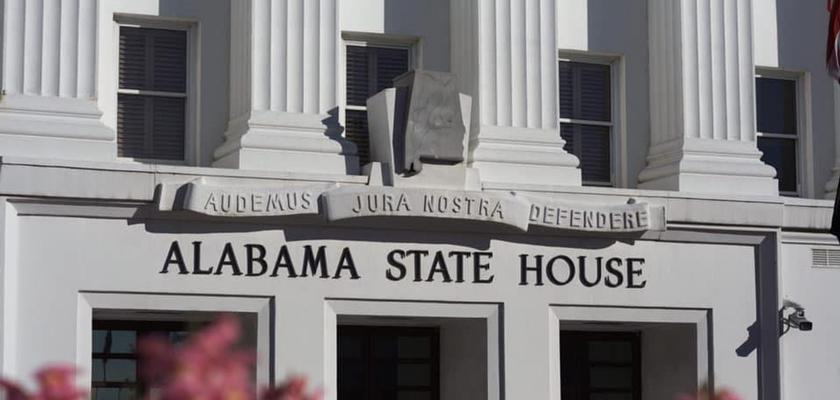The Alabama Legislature closed the 2022 regular session on Thursday. Conservatives saw several victories, particularly on gun and transgender issues, during the session. However, there were a number of areas where the Republican supermajority in the legislature and the conservative base of the party were out of sync.
“The 2022 Regular Legislative Session included many important victories for the conservative Republican cause in Alabama," Former State Rep. and current Alabama Republican Executive Committee member Perry O. Hooper Jr. (R-Montgomery) Hooper told 1819 News. "Constitutional Carry was finally passed. Select tax cut bills for hard-working Alabama citizens in the amount of $160 million were passed and signed into law by Gov. Kay Ivey. There were pay raises for our dedicated educators and state employees. The legislature wisely banned gender transition medical procedures for minors. The Alabama legislature went a step further than Florida by prohibiting the discussion of gender identification and sexual orientation until at least the sixth grade. The legislature codified the commonsense requirement that students use restrooms and locker rooms that correspond to their gender on their birth certificate.
“The legislature adjourned, however, with some crucial unfinished business. Representative Ed Oliver’s (R-Dadeville) Divisive Concepts bill ... would have forbidden the use of critical race theory concepts or practices in education in our state. This includes teaching practices and hiring or promotional requirements. The legislature also did not address the very important issue of big tech oligarchs censoring our right to free speech.”
Hooper sponsored resolutions before the executive committee on both measures, and they passed overwhelmingly.
Hooper told 1819 News that also missing from the recent legislative session were bills protecting doctors who prescribed off-label medications such as hydroxychloroquine or ivermectin for COVID-19 from having their licenses to practice taken away. State Sens. Arthur Orr (R-Decatur) and Jim McClendon (R-Springville) sponsored legislation that would have provided doctors with some protections from retaliation and guaranteed that pharmacists would fill those prescriptions, These bills cleared committee but, like the Divisive Concepts bill, were never considered on the Senate floor.
Hooper said that many conservatives were disappointed that no major school choice legislation was passed even though the state passed a record $8.26 billion Education Trust Fund (ETF) budget, and the state's educational rankings are among the worst in the country.
1819 News recently spoke with other conservatives lamenting that the state remains one of the few that taxes groceries and even basic foodstuffs like flour, meat, eggs, fresh vegetables, milk and even baby food. The legislature brought a $1.2 billion budget surplus into the 2022 fiscal year, yet Rep. Mike Holmes’ (R-Wetumpka) bill to end the four percent tax on groceries never even got a vote in committee. 1819 News was told that ending the grocery tax would have cost $600 million.
Orr sponsored and passed legislation allowing Alabamians to take a larger personal exemption on their state income taxes, and State Rep. Lynn Greer (R-Rogersville) sponsored and passed legislation allowing Alabamians over the age of 65 to not pay state income tax on up to $6,000 a year in disbursements from their IRA or 401k retirement savings. Other than these two modest reforms, the state left the five percent state income tax rate in place. In past sessions, Sen. Dan Roberts (R-Mountain Brook) and Rep. Danny Garrett (R-Trussville) have carried bills to lower the tax rate on corporations and individuals, arguing that the high rate makes this state increasingly unattractive for businesses looking to relocate to Alabama. There was no movement at all on that issue this session even while Mississippi legislators passed historic cuts to their income tax including a plan to eventually phase it out completely. Tennessee has already done so, Georgia passed a $1 billion tax cut for their citizens, and Florida has no state income tax.
Conservative education reform advocates were even less pleased by this legislative session. There was no serious consideration during the session to repeal the Common Core-aligned Alabama College and Career Ready Standards, even though there is no quantifiable evidence that educational performance has improved even slightly during the eight years that the standards have been in place. Small government conservatives opposed the Numeracy Act where the state created positions for hundreds of math coaches to instruct teachers on how to teach the state’s experimental new math methodology, even though Alabama’s fourth-graders were the lowest-performing fourth-graders in math in the entire country in pre-COVID-19 end-of-year testing. The legislature also hired 149 more mental health coordinators for schools and made no effort to ban social-emotional learning (SEL). The legislature even increased funding for the State Department of Education (ALSDE) by over $100 million in the 2023 budget rather than giving that money back to taxpayers or passing it on to the local school systems. The state will spend a record $467,086,467 on the ALSDE in the 2023 fiscal year which begins Oct. 1. How exactly plowing record funds into the state’s central education bureaucracy is supposed to lead to better educational outcomes for Alabama students is something that confounds some conservative grassroots activists.
Hooper has not given up hope that the legislature can address some of these issues before the end of the year.
“All indicators point to another special session this fiscal year to address federal COVID relief funds,” Hooper said. “I urge the Republican Caucus in the House and Senate to rally around these issues that are so important to all Alabamians and pass bills for Governor Ivey to sign into law before the November elections.”
To connect with the author of this story, or to comment, email brandon.moseley@1819News.com.










